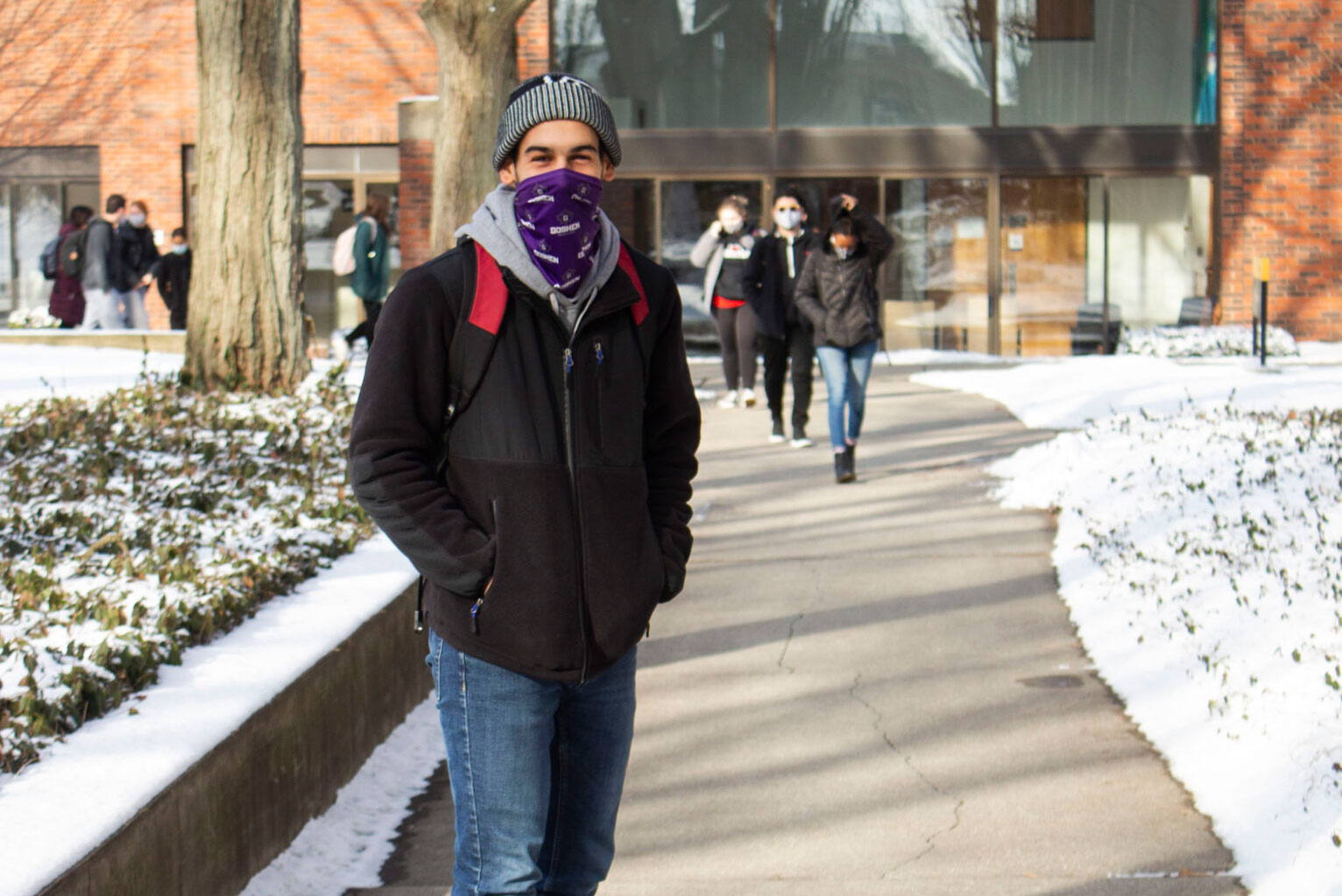In the results of a recently released survey, Goshen College students indicated significantly higher satisfaction rates with the college’s COVID-19 policies as compared to other peer schools.
As part of the Higher Education Data Sharing consortium (HEDS), GC participates in surveys with schools of comparable sizes and resources that allow them to anonymously measure how students are doing in comparison to other institutions.In a follow-up to the March survey released soon after students were sent home, the fall COVID-19 survey was offered by HEDS to gauge student satisfaction with their college’s procedures related to COVID-19.
Twenty-eight schools participated in the survey, and over 21,000 students responded.
The two main areas of the survey looked at how GC’s policies affected academics and campus life.
Justin Heinzekehr, director of institutional research, remarked that GC’s students, “were [consistently] rating their experiences either on par or above the peer institutions,” which he found encouraging.
In the questions about academics, GC students rated their experiences either right with or above the peer institutions.
Only 6% of GC students reported having entirely online classes, as compared to 36% of students at similar schools.
However, when it came to campus life, GC students were markedly more satisfied than peer institutions.
In categories such as locations to study, as well as opportunities for clubs, campus events and physical health services, GC scored around 20% higher than comparable schools with percent satisfied or very satisfied.
Access to mental health services and social life on campus scored about 13% higher than peer institutions.
Heinzekehr helped contextualize the data, noting the significance of a 20% gap: “Usually, if we are 5-10% above then that’s a pretty significant difference. So, the fact that we’re 20% above – you just don’t see a gap of that size very often.”
President Rebecca Stoltzfus offered some explanations for some of the reasons behind the high satisfaction rates at GC, saying that finding the “middle ground” was key.
President Stoltzfus said that putting in place extreme restrictions, such as eliminating athletics or doing entirely virtual classes, could have reduced infections but, “certainly would have reduced student satisfaction and success.”
While this data is certainly encouraging, it does not mean that every student had a successful semester, Heinzekehr noted.
He was hesitant to paint a “completely rosy picture,” because for many, this semester has been quite challenging.
President Stoltzfus reinforced this sentiment, noting that while the survey results indicate that the college has “discerned well,” she emphasized that there is no perfect solution during a global pandemic.
Going forward, she looks to continue finding that middle ground where safety and satisfaction can meet to ensure a healthy and fulfilling college experience.



